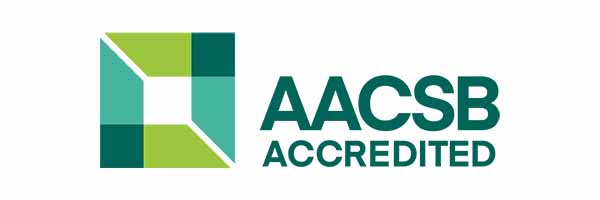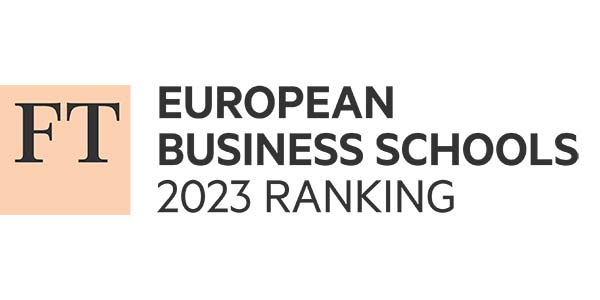MSc Economics & Finance
ApplyKey facts
- Start date: September
- Accreditation: Triple-accredited business school AACSB, EQUIS, AMBA
- Study mode and duration: 12 months full-time
Study with us
Studying an MSc Economics & Finance at Strathclyde Business School, you'll be learning at a pioneering internationally-renowned academic organisation that shapes and develops the business minds of tomorrow.
A multi-award-winning university, we're the only institution to have won the Times Higher Education University of the Year award twice (2012/2019).
- enhance your knowledge and skills in a range of economics, finance, analysis and quantitative methods
- learn to analyse, understand and explain complex economic and financial issues
- develop specialised skills through choice of options
Why this course?
The aim of the MSc Economics & Finance is to produce highly skilled professionals who can analyse, understand and explain the complex economic and financial issues that arise in a globalised world.
Jointly delivered by the Departments of Economics and Accounting & Finance, you will study the interaction between economics and finance, which is now critical to understanding the world we live in.
Training in these subjects will equip you for finding employment in the public or private sector as economists, analysts or consultants.
There is a strong emphasis on developing and applying skills learned in classes to real-world situations.
The practitioner seminar series within our Professional Development for Economists class provides you with opportunities to learn from senior figures in business, consultancy and government about the key economic issues of the day and their own journey to the top of their chosen career. Many of the speakers are our own graduates.


What you'll study
The programme is centred on a suite of core classes designed to develop and enhance your knowledge and skills in a range of economics, finance, analysis and quantitative methods subject areas.
You'll be able to pursue your own individual interests and further develop specialised skills relevant to your chosen career paths through a wide range of elective classes.
Summer Project
The MSc is completed by producing a piece of research in the summer term. You'll have the choice to undertake a substantive piece of applied work on a topic that is of particular interest to you, with supervision provided by an appropriate member of staff (in Economics), or to undertake two shorter empirical projects in Finance during the summer months. These choices let you apply the skills and learning you have developed during the course of your taught classes.
Guest Lectures
The course will regularly bring speakers from industry, research and policy areas to share their insights as part of core classes. Recent speakers have come from organisations including Competition and Markets Authority, OFGEM, Foreign and Commonwealth Office, Department of Work and Pensions and Scottish Renewables.
Fraser of Allander Institute
The Department of Economics is the home of the Fraser of Allander Institute, a leading independent economic research institute.
Besides teaching several classes, the Institute offers opportunities for work placements each year.
Through our link with the institute, you'll have a unique opportunity to engage with staff working at the cutting edge of applied economics research, industry engagement and policymaking. Recent students have also had the opportunity to publish articles on the Fraser of Allander Institute's blog and contribute to its podcasts.
Triple-accredited business school
Accounting & Financial Analysis
The aim of this class is to provide you with an understanding of the basic principles of financial accounting and financial analysis, the ability to interpret financial statements and their use in assessing the financial position and performance of companies.
This class provides an introduction to the principles of accounting and the analysis of financial statements. It will enable you to prepare financial statements in accordance with International Financial Reporting Standards (IFRS) and to interpret and analyse these statements. Particular emphasis is placed on the accounting concepts and information employed in financial analysis and decision taking.
You'll develop the ability to prepare and interpret financial statements and construct cash forecasts. In addition, you'll develop an understanding of the demand and supply for accounting information; an appreciation of the role of financial analysis and analysts; and an awareness of the statistical characteristics of accounting numbers.
Find out more in the class outline of Accounting & Financial Analysis.
Analysis of Economic Data
This module introduces some of the statistical methods commonly used in applied economics with an emphasis on regression analysis.
You'll focus on understanding and application but also consider some of the more formal concepts required to engage in econometric work with confidence.
Fundamentals of Macroeconomics
10 credits
You’ll learn about key macroeconomic variables and how changes in GDP, unemployment and inflation can impact on day-to-day policy and business decisions. You'll also study objectives and challenges in the design of macroeconomic policies by central banks and government’s finance departments and gain an understanding of how policies impact on the macroeconomic environment.
Fundamentals of Microeconomics
10 credits
This class will introduce you to some key concepts and principles of economics, focusing particularly on consumer theory and the theory of the firm. You’ll be shown how these concepts and theories are applied to the analysis of a range of contemporary real-world issues.
International Macroeconomics
This course will enable you to understand global trends and to study the key drivers of international economics, including how exchange rates move; what determines flows of international investment; and why some countries grow more quickly than others. With the global economy becoming ever more integrated, understanding of these issues is important for the applied Economist working within business, consulting and policy.
10 credits
Principles of Finance
20 credits
This class will provide an introduction to financial decision-making, and much of the relevant analysis will be developed from the standpoint of corporate finance. It'll explain how a company should decide on the investments to be undertaken to meet its objectives, generally assumed to be the maximisation of its value. It will be demonstrated that this will require a rate of return on its investments in excess of the return available in the capital market on equally risky financial investments. As a result, it will be necessary to develop an understanding of the capital market risk-return relationship. This will require an appreciation of the nature of risk and how this can be managed by the development of portfolios.
Even though the focus of the class will be on corporate finance, it'll also require an appreciation of how the risk-return tradeoff is determined in the capital market.
Find out more in the class outline for Principles of Finance.
Professional Development for Economists
This class is a truly distinctive feature of our MSc, combining a practitioner seminar series with site visits and skills development sessions. You will learn about topical issues in economics from invited speakers who are working as Economists in business, consultancy or policy roles as well as developing core transferable skills that extend the applied Economist’s toolkit. These skills include writing accessible briefing notes, presenting data, team working, planning and delivering on consultancy projects, leadership skills and gaining experience in presenting findings.
This class is complementary to the other classes and is fundamental to developing the skills that are sought after by employers.
Summer Project
Your summer project makes up 40 of the 180 credits required to receive your MSc award. While we expect that all learning throughout the degree will be helpful for the Summer Project, you can choose your topic from any area/issue in the field of Economics.
Every student will be supervised by an appropriate member of staff with expertise in the research area. This is your opportunity to develop a substantive piece of applied work on a topic that is of particular interest to you under the guidance of a supervisor.
In addition to providing a key opportunity to put into practice what you have learned during your MSc studies, this project will provide useful experience for your future careers. We're also able to supervise students who are sponsored by their employer and wish to work on a topic of interest to both them and their employer.
40 credits
Option 1
Advanced Corporate Finance & Applications
The aim of this class is to discuss the different ways in which firms can raise funds, internally and externally, and the role of capital markets in determining the terms on which funding will be available. The costs and risks of difference sources of financing and the role of taxation will also be covered.
It will also provide you with a working knowledge of the leasing decision of a firm, of corporate financial planning, the management of working capital, the rationale for mergers and acquisitions, the implications of corporate governance, and issues related to corporate financial restructuring.
The class will cover the capital structure of companies, and their ability to raise finance through initial and seasoned equity capital issues. It will also examine mergers and acquisitions as major investments undertaken by companies, the firm’s working capital policy, and their payout policy in the form of dividends and stock market buybacks. It will be conducted through a series of lectures and tutorials.
Find out more in the class outline for Advanced Corporate Finance & Applications.
Derivatives & Treasury Management
20 credits
The aim of this class are to provide a strong grounding in derivatives that may be used to manage the financial risks faced by individuals, financial institutions and business corporations. It places an emphasis on corporate treasury management and the role of derivatives in managing treasury risk.
Find out more in the class outline for Derivatives & Treasury Management.
Option 2
Topics in Corporate Finance
In this class, you'll discuss the different ways in which firm's can raise funds, internally and externally, and the role of capital markets in determining the terms on which funding will be available, the costs and risks of difference sources of financing, and the role of taxation.
Derivatives
The aims of this class are to provide a strong grounding in derivatives that may be used to manage the financial risks faced by individuals, financial institutions and business corporations.
In particular, the class will examine futures and forward contracts, options, swaps and credit derivatives, and how these may be used for speculation, hedging, and arbitrage purposes. The emphasis is on understanding the pricing of these derivatives and the strategies devised to hedge long and short positions in underlying assets such as equities, bonds, and interest rates.
The role of derivatives in the global financial market is also covered, including a discussion of the difficulties due to the regulatory framework of derivatives and the (partial) lack of regulation of derivatives. Emphasis is placed on practical techniques and the solution of problems, though not to the exclusion of theory. It will develop students’ understanding of international finance and capital markets, foreign exchange risk management and derivatives.
You'll have the opportunity to choose two classes from the following list:
Behavioural Finance
10 credits
The aim of the class is to provide you with an understanding of the main ideas of behavioural finance. A particular emphasis is placed on understanding the roles of non-rational actions and the development of new financial models that incorporate these ideas.
You'll engage with up to date research and develop a critical view of existing and new finance theories and models. It aims to introduce you to the rapidly evolving area of behavioural finance. You'll develop an understanding of behavioural finance and an appreciation of its possible implications and applications.
This class introduces you to behavioural finance and provides you with an understanding of the main flaws of 'traditional' finance theory from a behavioural finance viewpoint. It will allow you to develop the ability to discuss issues arising from violations of the rationality assumption and will enable you to evaluate new theoretical models based on research in psychology.
The course will allow you to appreciate the role of new developments in finance and their possible implications for established views of the functioning of financial markets.
Find out more in the class outline for Behavioural Finance.
Energy Economics
In this class you'll explore key economic issues at the heart of topical energy questions – building on the University’s outstanding reputation as a centre of excellence in energy technology and policy. The class covers the objectives of energy policy; private and social perspectives on energy supply and demand; the special case of regulation of energy markets; the use of economic models in energy analysis; the economics of oil and gas activity and links between energy use and the energy sector and an economy.
10 credits
Environmental Economics
A growing, and increasingly important, part of the work of many applied Economists includes the economic analysis of environmental issues. Additionally, many professionals working in the fields of energy, the natural environment, or business more generally will find that their careers require some working knowledge of economic approaches to environmental problems. The main objective of this class is to provide a thorough grounding in the economics of the environment, with a particular focus on environmental protection in an international policy context, such as climate change the loss of biological diversity.
10 credits
Games of Strategy
In this class you will study decision making in strategic scenarios where the outcome of a decision depends not only on your decision but also the decisions made by others. This is a key class for those considering careers in industry where competition is crucial and effective market strategies are vital to the success of the business. You will learn how to make effective decisions in such environments and to gain an advantage over your competitors.
International Development
This class will introduce policy relevant issues and knowledge in the economics of development. Lectures will combine insights from theoretical economic models with policy-relevant empirical evidence on in low-income countries. Moreover, through the thorough analysis of empirical research, the class will assist students in developing skills required to make an effective contribution working as an applied economist.
10 credits
Management Accounting
The course aims to give you a foundation in the theory and practice of management accounting. It emphasises the role of the management accountant in helping the owners and managers of a business to make decisions.
Different accounting information is required for different purposes: conventional cost accounting emphasises product costs for the allocation of costs between the cost of goods sold and inventories; decision-relevant costs provide information to help managers make resource allocation decisions; and responsibility accounting, cost control and performance measurement focus on both financial and non-financial information.
This course provides an introduction to the theory and practice of management accounting. It covers management accounting principles and their relevance to the business environment. It further involves a detailed exploration of the uses of management accounting information in the financial decision making process.
Portfolio Theory & Management
10 credits
The class aims to examine the Markowitz (1952) approach to optimal portfolio selection. The class explores issues relating to optimal portfolio choice and issues in passive and active fund management through the lens of the nature of variance, covariance, risk and return. The class introduces practical applications and an extension of basic theory.
Find out more in the class outline for Portfolio Theory & Management.
Security Analysis
10 credits
The class aims to develop an appreciation of the investment characteristics of different types of securities, particularly bonds and shares, and to develop an understanding of how such securities are valued. This class will build on the analysis developed in the Semester 1 class, Principles of Finance. It will consider the determination of interest rates, the valuation of bonds, the management of bond portfolios, and the valuation of equities.
Find out more in the class outline for Security Analysis.
Topics in Public Economics
Learning & teaching
Core and elective classes will be taught across two semesters running from September to December and January to March. Classes will be taught through a combination of lectures, tutorials, group and individual projects, labs, workshops and visits. Summer projects are undertaken during the summer months.
Assessment
Every class will either have a class test or assignment during semesters 1 and 2. Exams will take place at the end of each semester in December and April/May.
Chat to a student ambassador
Want to know more about what it’s like to be a Strathclyde Business School student at the University of Strathclyde? A selection of our current students are here to help!
Our Unibuddy ambassadors can answer all the questions you may have about their course experiences and studying at Strathclyde, along with offering insight into life in Glasgow and Scotland.
Chat now!What our students think

Pawel Czarnowski
The course has been a tremendous help to my development, especially in economics and econometrics. I significantly improved my writing and presentation skills as well. I believe that having these skills will be very beneficial to me during my PhD.

Slawek Dzido
Economics & Finance constitutes a perfectly blended balance between the core content of both economics and finance. It’s an amazing opportunity particularly for those without prior direct exposure to academic economics or finance. Similarly, it will benefit those who would like to gain a new perspective while maintaining or developing in-depth knowledge in the prior field.

Shreya Mishra
The highlight of the module was that the kind of tasks I performed (such as writing policy briefing notes, presenting data, planning, and delivering on consultancy projects, leaderships skills and gaining experience in presenting findings) have now built my ability to apply and work in several roles where there are demands for the well-rounded applied economist.
Strathclyde Business School
Strathclyde Business School was founded in 1948 and is a pioneering, internationally renowned academic organisation with a reputation for research excellence.
One of four faculties forming the University of Strathclyde, SBS is a triple-accredited business school (AACSB, EQUIS and AMBA) and was the first business school in Scotland to achieve this accolade in 2004. The Business School is home to seven subject departments and a number of specialist centres, all of which collaborate to provide a dynamic, fully-rounded and varied programme of specialist and cross-disciplinary courses.
Strathclyde Business Network
As a postgraduate student at Strathclyde Business School, you may choose to join the Strathclyde Business Network, a student-led initiative that facilitates interaction with business and industry leaders.
The Network aims to foster knowledge sharing, facilitate discussion and enable networking opportunities with the very best business professional in industry. Every year the Network organises Glasgow Business Summit, which is the first-ever student-led business conference in Scotland and brings together students with leading businesses from across the UK.
Entry requirements
| Academic requirements/experience | Minimum second-class honours degree or overseas equivalent (view the entry requirements for your country) in:
Applications are also welcome from candidates with strong career experience in a relevant field. |
|---|---|
| English language requirements | Students whose first language is not English must have a minimum of 6.5 IELTS score, with no individual score lower than 5.5. Get more information about the English language requirements for studying at Strathclyde. |
Pre-Masters preparation course
The Pre-Masters Programme is a preparation course held at the University of Strathclyde International Study Centre, for international students (non-UK/Ireland) who do not meet the academic entry requirements for a Masters degree at University of Strathclyde.
Upon successful completion, you'll be able to progress to this degree course at the University of Strathclyde.
Please note: Previous Maths & English qualifications and your undergraduate degree must meet GTCS minimum entry requirements as well as the pre-Masters course and an interview will be conducted before an offer can be made.
International students
We've a thriving international community with students coming here to study from over 140 countries across the world. Find out all you need to know about studying in Glasgow at Strathclyde and hear from students about their experiences.
Visit our international students' section
Fees & funding
All fees quoted are for full-time courses and per academic year unless stated otherwise.
Fees may be subject to updates to maintain accuracy. Tuition fees will be notified in your offer letter.
All fees are in £ sterling, unless otherwise stated, and may be subject to revision.
Annual revision of fees
Students on programmes of study of more than one year (or studying standalone modules) should be aware that tuition fees are revised annually and may increase in subsequent years of study. Annual increases will generally reflect UK inflation rates and increases to programme delivery costs.
| Scotland | £16,650 |
|---|---|
| England, Wales & Northern Ireland | £16,650 |
| International | £28,250 |
| Additional costs | International studentsInternational students may have associated visa and immigration costs. Please see student visa guidance for more information. FinanceTextbooks vary in price from around £40 to £100. The majority are provided free in the library or through MyPlace, our Virtual Learning Environment. We recommend that you allow £200 per academic year for books. Students may be required to make hardcopy submissions for some assignments and will cover the cost of printing. Students are required to print and soft bind their project submission. An average cost would be in the region of £10. EconomicsCourse materialsClass materials comprise textbooks and course handbooks. All the compulsory handbooks are available to students free on MyPlace, our Virtual Learning Environment. Some classes may have a recommended core textbook which you may wish to purchase but copies will be available in the library. Placements & field tripsExpenses related to field trips will be covered by the department i.e. transport and entry to sites. Students will be required to cover any travel costs associated with their summer project. Other costsGraduation gown hire. |
| Available scholarships | Take a look at our scholarships search for funding opportunities. |
Please note: the fees shown are annual and may be subject to an increase each year. Find out more about fees.
How can I fund my course?
Scottish postgraduate students
Scottish postgraduate students may be able to apply for support from the Student Awards Agency Scotland (SAAS). The support is in the form of a tuition fee loan and for eligible students, a living cost loan. Find out more about the support and how to apply.
Don’t forget to check our scholarship search for more help with fees and funding.
Students coming from England
Students ordinarily resident in England may be to apply for postgraduate support from Student Finance England. The support is a loan of up to £10,280 which can be used for both tuition fees and living costs. Find out more about the support and how to apply.
Don’t forget to check our scholarship search for more help with fees and funding.
Students coming from Wales
Students ordinarily resident in Wales may be to apply for postgraduate support from Student Finance Wales. The support is a loan of up to £10,280 which can be used for both tuition fees and living costs. Find out more about the support and how to apply.
Don’t forget to check our scholarship search for more help with fees and funding.
Students coming from Northern Ireland
Postgraduate students who are ordinarily resident in Northern Ireland may be able to apply for support from Student Finance Northern Ireland. The support is a tuition fee loan of up to £5,500. Find out more about the support and how to apply.
Don’t forget to check our scholarship search for more help with fees and funding.
International students
We've a large range of scholarships available to help you fund your studies. Check our scholarship search for more help with fees and funding.
Careers
As a graduate of this course, you'll be well suited to find employment in any job where a good knowledge of economics and finance is required. Students recently graduating from the course have secured jobs including Analyst, Liquidity Risk Reporting Analyst, Credit Officer, Tax Associate, Partner, and Consultant.
Recent examples include former students working in the following areas:
- financial institutions including JP Morgan in Mumbai, BankMuscat in Oman, and PWC and Barclays Investment Bank in Glasgow
- banks, including Banco Industrial in Guatemala, Nordic Corporate Bank in Norway, and Bangkok Bank in Thailand, management consultancies, including Virtusa in Sweden.
Glasgow is Scotland's biggest & most cosmopolitan city
Our campus is based right in the very heart of Glasgow. We're in the city centre, next to the Merchant City, both of which are great locations for sightseeing, shopping and socialising alongside your studies.
Life in Glasgow
Apply
For information and guidance on the application process, take a look at our How to Apply web page.
Start date: Sep 2024
Economics and Finance
Contact us
SBS Postgraduate Admissions
Telephone: +44 (0)141 553 6105 / +44 (0)141 553 6116
Email: sbs.admissions@strath.ac.uk
Strathclyde Business School, University of Strathclyde
199 Cathedral Street
Glasgow
G4 0QU
Have you considered?
We've a range of postgraduate taught and Masters courses similar to this one which may also be of interest.

Emem Akpan
I ultimately decided to enrol at Strathclyde because of its outstanding research and opportunities for experiential learning, which allow students to apply what they learn in the classroom to real-world scenarios.





